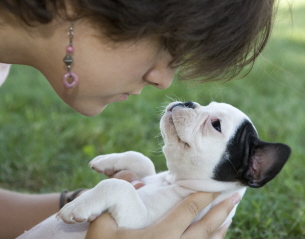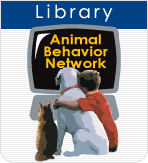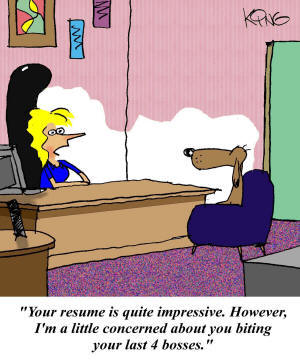|
Getting Started Week 44 - Classifying Canine Aggression
 Once a
dog bites a person, a second bite becomes more likely depending on the
circumstances. Aggression can be situational. For example, if the dog
bites someone at the veterinary practice, he or she may be more likely
to bite again in that location. If a child puts a pencil in a dog's ear,
the dog may be more likely to bite a child. Once a
dog bites a person, a second bite becomes more likely depending on the
circumstances. Aggression can be situational. For example, if the dog
bites someone at the veterinary practice, he or she may be more likely
to bite again in that location. If a child puts a pencil in a dog's ear,
the dog may be more likely to bite a child.
Once a dog has punctured human skin, or if the dog bit repeatedly during
the first biting event, the prognosis
for improvement is more grim.
Ideally,
aggression is prevented. Second best
case is catching aggression early and getting professional help from a
veterinary behavior consultant - without resorting to violence
ourselves. Violence only teaches more violence.
It's crucial to learn the true CAUSE of the aggression. The dog may
have an unidentified pain or chronic discomfort creating a short fuse.
After a comprehensive medical exam and diagnostic tests to rule out any
possible underlying discomfort, the next step is a comprehensive
behavioral history and behavioral profile for the aggression.
Any combination of the following types of aggression may be present:
barrier frustration, displaced aggression, drug induced,
housemate, irritable, pain-induced, predatory, possessive, fear,
hormonal, maternal, pack response, play, family protection, rage
syndrome, encephalopathic, improper socialization, trained,
unintentionally learned. For more information, call
1-800-372-3706 to speak to a veterinary behavior technician.
Parenting Tips™ for your puppy
|
Error Free Puppy Raising™
- Click on Library Icon below to learn more:

Use Library
Icon
to
go to Library
|
 |
|